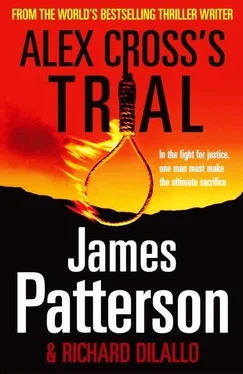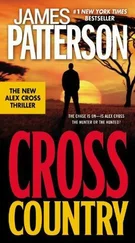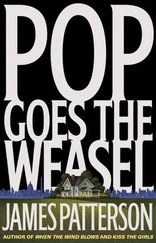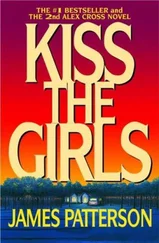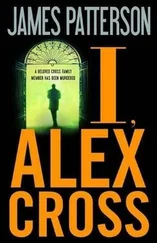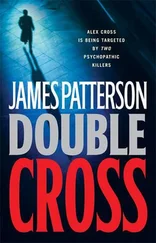Meg, much has happened in the time we have spent apart. I have been involved in a highly provocative trial here in Eudora. I’m sure you’ve read about it in the newspapers. I will not waste time in this letter describing the trial, except to say that as I write to you now, the jury is deliberating the outcome.
I know that this might anger you, but I must tell the truth. I am convinced beyond any doubt that I am doing the right thing when I try to use my skills as a lawyer to help those who can’t find justice anywhere else.
Meg, I know that I alone cannot right the wrongs of this society. But I cannot and will not stop trying. I know you feel that effort takes too much energy and time away from you, our girls, and my love for the three of you.
Should you decide to continue our marriage, I promise I shall try to be a better husband and father.
But I must also warn you that I will not (and cannot) abandon my ideals. As much as you may long for it, I cannot become just another government lawyer.
Please, Meg, give it another chance. We have so much to lose if we abandon each other. We have so much to gain if we try to move forward together.
My time here in Eudora is drawing to an end. Soon I will be coming back to Washington, and to you. I know now – I have learned – that Washington is my home. You are my home, Meg. The girls are my home.
I pray that when I open that front door, I will hear your sweet voice again, and you will speak to me with love.
Till I see you again, I remain
Your loving husband,
Ben
THE JURY HAD A VERDICT.
My father banged his gavel furiously, but it did no good. “Quiet!” he bellowed. “I will clear this courtroom!”
Spectators pushed this way and that, tripped over one another, stumbling to find seats. My father continued hammering away at his bench. The jurors began to make their way to the jury box, blinking nervously at the uproar their appearance had provoked.
“I will clear this courtroom!” my father shouted again, but this had no effect at all on the level of noise and excitement in the room.
“Very well,” he said. “Bailiff, get ’em all out of here. Get ’em all out! ”
Those were the magic words. Instantly the courtroom came to perfect attention. The crowd fell silent, and everyone sank into the nearest available seat.
“Very well. That’s much better,” said Judge Corbett. “Mr. Foreman, has the jury reached a verdict?”
“Yes, Your Honor, we have.”
The foreman handed a white slip of paper to the bailiff, who handed it up to my father. Though this took only seconds, it seemed much longer than that. Time was slowing, and my senses were unbearably acute.
My father opened the paper and read it with no visible emotion. He raised his head and looked my way, still betraying nothing about the verdict.
Then he spoke. “Mr. Foreman, in the matter of the State of Mississippi versus Madden, North, and Stephens, how does the jury find?”
In that moment, it seemed to me, all life stopped on this earth. The birds quit chirping. The ceiling fans stopped spinning. The spectators froze in midbreath.
The foreman spoke in a surprisingly high-pitched whine.
“We find the defendants not guilty.”
As he uttered those impossible words, I was staring at the piggish face of Henry Wadsworth North. The hardest thing of all was seeing the joy that broke out all over his hateful visage.
A smattering of cheers went up from the white audience. Reporters rose and sprinted for the doors. A collective groan, and then sobs, arose from the Negroes in the gallery.
My father banged his gavel again and again, but no one seemed to care.
AFTER THE COURTROOM HAD CLEARED, I sneaked out a side entrance to avoid the crowd of journalists out front, and did what I had done so many times lately. I got my bike and headed for the Eudora Quarters.
The first person I saw was the old man in the blue shack who had showed me the way to Abraham’s house the first time I came out here.
“You done your best, Mist’ Corbett,” he called. “Nobody coulda done better.”
“My best wasn’t good enough,” I called back. “But thank you.”
He shook his head. I continued down the dirt road.
A large brown woman was coming the other way, balancing a wicker basket of damp clothes on her head and carrying another under her arm. She picked up the conversation in midstep: “Aw, now, Mistuh Corbett, that’s just the way things goes,” she said.
“But it’s not fair,” I said.
She laughed. “Welcome to my life.”
There I was, trying to explain the concept of fairness to a woman carrying two huge baskets of other people’s washing.
At the crossroads in front of Hemple’s store, I saw the usual two old men playing checkers. I stopped in front of their cracker barrel. “I’m sorry, gentlemen,” I said.
One man looked up at me sadly. The other one said, “Well, suh, ain’t nobody strong enough to beat ’em. And so what they did was, they got off scot-free. Nothin’ new ’bout that.”
“Ben.” A soft voice, a hand on my arm. I turned. It was Moody.
She was wearing her white jumper again. She even had a little smile on her face.
“You planning to go door-to-door, explain to everybody in the whole Quarters what happened in the white man’s courtroom?” she asked.
“I would,” I said.
“Don’t you worry your purty head about it,” she said. “All the explaining in the world won’t change a thing.” She took me by the elbow, leading me away. The men watched us go.
“Papaw is worse sick,” she said. “I think the excitement of the trial done it. You want to see him? He wants to see you.”
ABRAHAM LAY in the narrow iron bed in the front parlor, just the way he was lying there the night the White Raiders attacked. His voice was so faint I barely heard him. His lips were cracked and dry. “I imagine you been going around beating yourself up pretty good about this verdict, eh, Ben?” he asked.
“I thought I could accomplish something,” I said. “The country was watching, from the president on down. I thought we could make a little bit of progress.”
“Who’s to say we didn’t?” he asked.
Moody gently dabbed his forehead with rubbing alcohol, then blew lightly to cool his skin. Every time she touched his face, Abraham’s eyes closed in gratitude. I thought he must be seeing clouds, getting ready to dance with the angels.
“When you get to be as old as me, Ben, you can’t help but remember a lot of things. I was thinking about my mama… one time I stole a nickel from her purse. She knew it before she even looked in there, just by peering in my eyes. She said, ‘Abraham, I don’t know what you guilty of, but you sho’ nuff guilty of somethin’, so you might as well go on and confess.’ I cried for an hour, then I give back that nickel.”
Moody kept rubbing his face, rhythmically massaging the skin with her fingers. His eyes closed, then opened. He went on.
“I was just a young man during the war,” he said. “You ever heard that expression, how they say the ground ran red with blood?”
I said I had heard it.
“I saw it with my own eyes,” he said. “I saw the ground run red. I was up at Vicksburg, just after the fight. I saw… oh, Lord. Hurts to remember. I saw legs, you know, and arms, and feet, big heaps of ’em outside the hospital tent. All rottin’ in the sun.”
I could see the horror of it all in my mind’s eye.
“But bad as it was,” Abraham went on, “that’s when things begun to change. A big change at the first, then they took it back. But what happened in that courtroom… that’ll change it. You just wait. You’ll live to see it.”
Читать дальше
